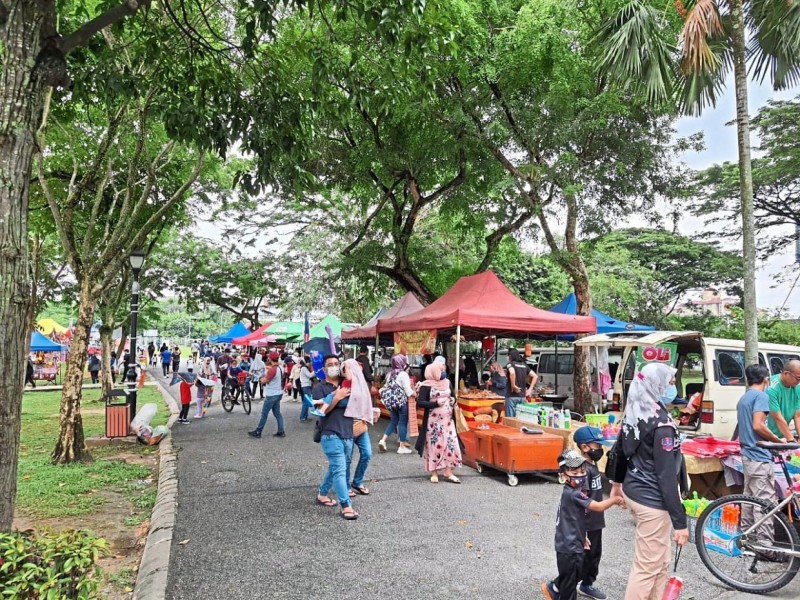
PETALING JAYA: Leading business groups in Malaysia are calling for targeted measures in Budget 2022 to aid businesses in recovery and to secure the nation’s talent pool.
They said these measures should be designed to work in tandem with the economic stimulus and aid packages introduced by the government last year amid the Covid-19 pandemic.
SME Association of Malaysia president Datuk Michael Kang said that after almost two years of intermittent lockdowns and re-openings, the void in cash flow was still the biggest problem facing most small and medium enterprises (SMEs).
“Most important is that the government continues to help SMEs with cash flow problems by having commercial banks prepare more funds to loan to SMEs.
“Tax incentives and waivers would be crucial for ailing businesses to recover faster.
“For example, a waiver of the real property gains tax (RPGT) or stamp duty for ailing companies when they dispose of their real property assets would be helpful.
“Similarly, companies in the hardest-hit industries should have their income tax waived for a year.
“Both these waivers would result in companies having more cash in hand to turn their business around,” he said when contacted yesterday.
Reiterating the need for more allocations for training, Kang said the existing workforce must be upskilled from “single talent to multi-talent”, as companies undergoing digital transformation or adopting automation need such employees.
With the prevalent work-from-home (WFH) culture, he said the government should consider tapping into some 600,000 women who had quit their jobs to care for their families.
“We have forgotten about these talents, who can be hired to contribute to the economy and help SMEs recover while still caring for their families,” he said.
Since the WFH system was already in place, Kang suggested the government encourage it so that the talent pool can be built up.
He also called on the government to shift its focus to creating more Malaysian unicorns – companies valued at US$1bil (RM4bil) or more – by promoting a “Buy Malaysia, Support Malaysia” move.
Malaysian Federation of Hawkers and Petty Traders Association president Datuk Seri Rosli Sulaiman said the government should provide a one-off grant of RM1,000 to each trader to help them recover.
“There are 35,000 hawkers and petty traders in Kuala Lumpur, and about 1.8 million nationwide – most of them have no more cash in hand after almost two years of restrictions.
“A one-off grant would create a huge economic ripple, giving them breathing room to get their business and commitments sorted out again,” he said.
Rosli also called for another round of an automatic bank moratorium to provide some financial relief to all hawkers and petty traders.
“Most of them have personal loans for their business while serving housing and car loans.
“The automatic moratorium would give them more cash in hand,” he said, adding that the moratorium should not be retroactive and should only start from the time interstate travel was allowed.
Federation of Malaysia Business Associations chairman Datuk Abdul Malik Abdullah called for public-private partnership to be enhanced.
He said the post-Covid-19 economy must be “led by the private sector and powered by the government”, with less reliance on the latter.
“The distress financing model from the government must be re-evaluated and the solution cannot be the banks.
“The government needs to come up with a new financing model,” he said, referring to helping ailing companies recover financially.
He called for the establishment of a new Special Purpose Vehicle (SPV) for post-Covid-19 Economic Relief, with its model based on public-private partnership (PPP).
“The government can regulate and set policies, while the private sector should have expertise on board.
“The government should provide financing at a subsidised rate with a clear exit timeline,” he said.
Under the SPV, Abdul Malik suggested having a “single window” that collated all ministries and agencies related to entrepreneurship when it comes to creating the economic stimulus package.
“Anything to do with business across all industries is to go to this single window,” he said, adding that the International Trade and Industry Ministry should shoulder the task.
Federation of Malaysian Manufacturers (FMM) president Tan Sri Soh Thian Lai said the manufacturing sector must continue to be supported as the catalyst of growth, the main contributor to exports, and the main source of demand for output from the other economic sectors.
“Financing assistance should continue, such as the bank loan moratorium for non-essential sectors and to cover all sizes of companies.
“Leasing should be included under the moratorium. There should be fast loan approvals for SMEs with government guarantees and low-interest rates,” he said, adding that special tax exemptions or rebates should be given to companies affected by the prolonged business closure.
Soh said a competitive tax regime with a gradual reduction of corporate and personal tax should be introduced, and the SME tax rate should be lowered further to 13-15% or a flat rate of 17% on full chargeable income.
He also called for a one-off tax exemption on 50% income generated by a business that went from offline to online during the pandemic, and tax exemption on e-commerce application tools, systems and services.
As for employment initiatives, Soh said employers who promoted and invested in the WFH culture should be given double tax deductions.
Source: https://www.thestar.com.my/news/nation/2021/10/28/groups-hope-for-more-aid

